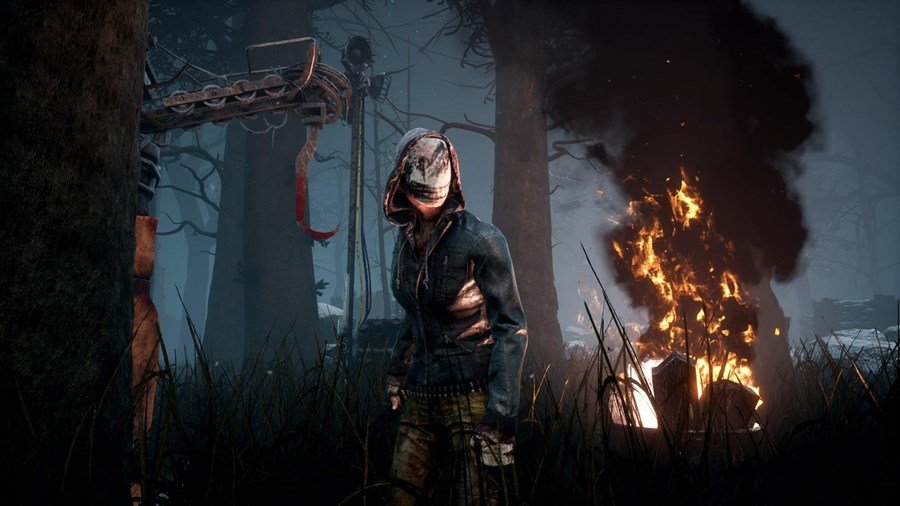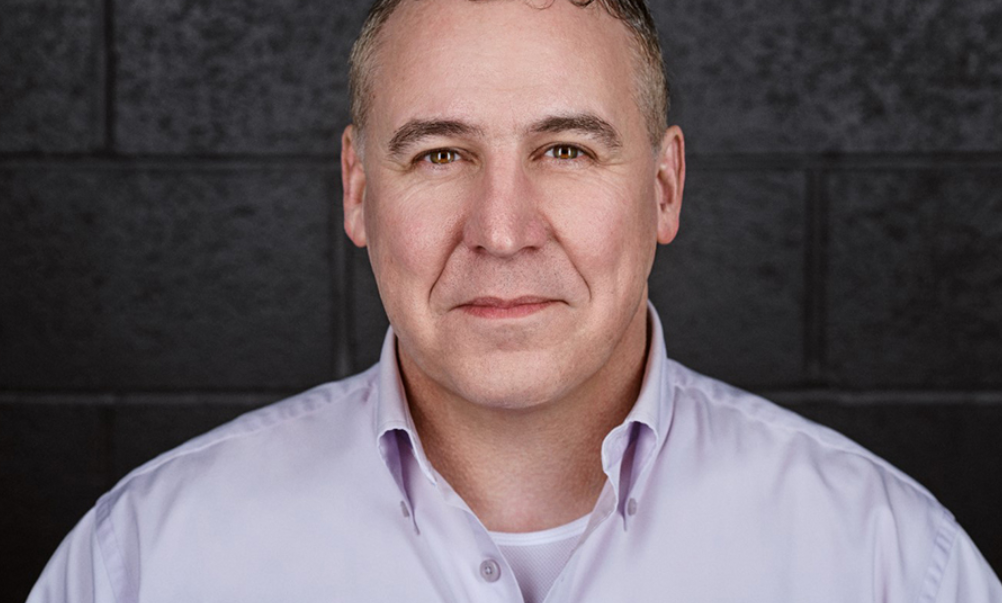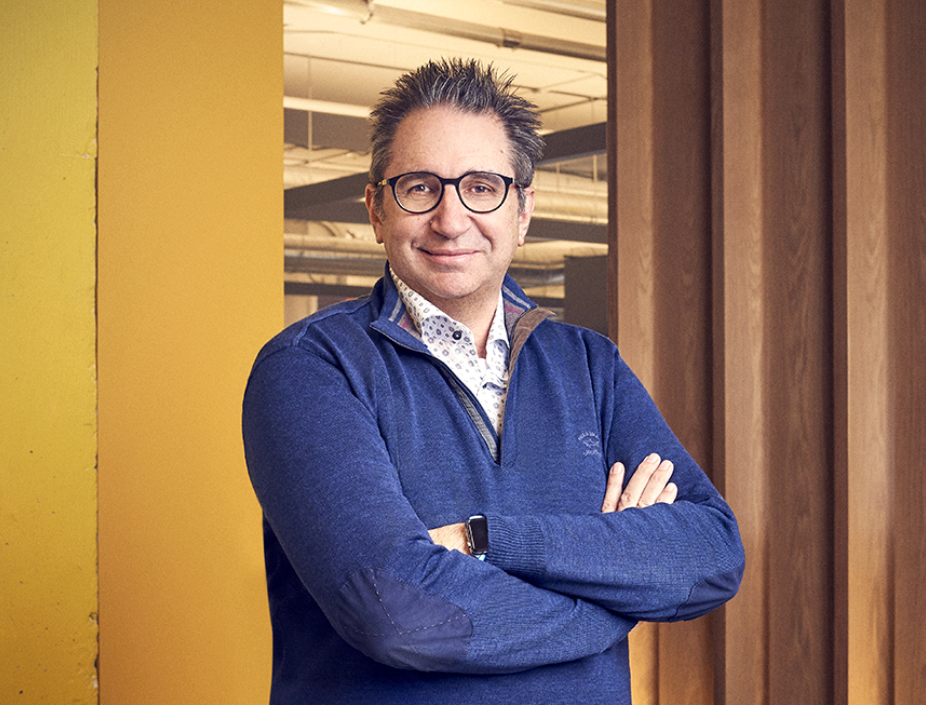
Dead by Daylight developer Behaviour Interactive may have been the industry’s “best kept secret,” according to newly hired chief marketing officer David Reid, but that’s slowly changing as the Montreal-based studio gains more and more recognition. The survival horror game has sold more than 5 million copies and has over 15 million players, but it’s Behaviour’s extensive work-for-hire efforts that have had the widest impact on the industry.
The Canadian studio has contributed to numerous hits, including Gears 5, Days Gone, Far Cry 5, Halo: The Master Chief Collection, and more. And it’s done all this while maintaining its status as one of the top employers in the industry, “avoiding crunch at all costs.”
Today, Behaviour made a significant hire, bringing on veteran David Reid to lead the company’s marketing plans as it envisions a “new era” for the studio involving the creation of more originally owned IP while expanding its work-for-hire business. Reid has extensive experience in the world of online gaming, having served as SVP of Publishing at Trion Worlds where he grew Rift to a $100 million business, and he helped grow Eve Online’s subscriber count past 500,000 while acting as CMO at CCP Games. He also oversaw marketing on Xbox 360’s launch, and for GameTap, a distribution service from Turner Broadcasting in the 2000s.
Considering the evolution of the games business and how much emphasis is placed on live services today, Reid’s experience should prove quite valuable at Behaviour.

“MMOs are really where games as a service began in the West, and while games like Dead by Daylight, Fortnite and League of Legends aren’t ‘MMORPGs’ like World of Warcraft, Rift and Eve Online, they absolutely are ‘MMOs’ as massively multiplayer online games with communities in the millions. Part of my role is making sure we maintain our focus on those aspects of the game and the business—which boils down to delighting the players you have and in parallel reaching out to new audiences,” Reid explained to GameDaily.
“It’s remarkable to me that as successful as Dead by Daylight has been, we’ve actually done very little marketing historically for the game. There are big opportunities for us to increase our presence around the world for Dead By Daylight as a game and a community, for Behaviour as a studio brand, and for the company’s vibrant services businesses. For a studio which has had the long run of success Behaviour has since its founding in 1992, it’s exciting to say as a marketer that we can see even greater successes to come in our future.”
According to Behaviour CEO Remi Racine, Reid’s hiring will play a critical role in the studio’s deeper push into self-publishing, but the organization will look to carefully balance its own projects with its work-for-hire business. Not only does work-for-hire keep the lights on, but it enables Behaviour to learn from its many partners.
“Behaviour’s unique proposition in the market is this complementary mix of two business models: work-for-hire services and the production of original games. While the development of original games has been identified by management as the key driver of growth for the future, by maintaining its work-for-hire services, Behaviour continues to benefit from collaboration with blue chip clients,” Racine told GameDaily. “Project management in this area is highly strategic since work-for-hire contracts provide a steady cash flow, facilitates the internal flow of personnel depending on production cycles, and supports employee training by collaborating with other major video game studios. We leverage the learning opportunities offered by collaborations with our partners.”
Publishers exist for a reason, and many independent studios continue to partner with big publishers to get proper amplification in an increasingly crowded market where discoverability remains a massive challenge. For Behaviour, nearly three decades of partnering with other big game companies has prepared the developer to handle the rigors of self-publishing, Reid said.
“For most of Behaviour’s history, the company wasn’t involved with marketing and publishing as we had the fortune to work with leading publishers who handled those facets of the business. That, of course, started to change with the success of Dead by Daylight, and Behaviour rapidly assembled a terrific team capable of handling the self-publishing of DBD. Now we’re entering a phase where we’ll have DBD Mobile alongside the PC/console business, and we’ve got other asymmetric titles in development. We’re in the midst of growing from having one title to self- publish to having a portfolio of games, and it’s critical to align all our publishing, marketing and communications efforts to support the entirety of the portfolio in a cohesive way,” he explained.
“There’s a lot of planning and coordination that needs to happen to execute well across multiple titles simultaneously, especially with titles at different stages in their life cycles, from the 3+ years of Dead by Daylight as a live service to new games still in prototype development. In parallel, it’s easier than ever to test out marketing ideas and campaigns and get real-time data prior to making large investments. So while we must carefully manage the scope of our increasing portfolio, we can make sound decisions about how to spend our publishing dollars in ways that marketers simply couldn’t in previous generations. It’s no longer enough to have a ‘cool’ advertising campaign which gets a gamer’s attention—we drill deeply into games as a service metrics and make sure that every campaign is driving the business successfully.”
Behaviour’s renewed push in the industry for its own publishing and work-for-hire services is well timed with the upcoming launches of both the Xbox Series X and PS5. Studios across the globe are either in the active planning stages or, for those working towards the consoles’ launches, nearing the end of some key projects. There’s ample opportunity for a company like Behaviour right now.
“Console launches are some of the most exciting inflection points we have in the industry, and they provide tremendous opportunities for studios like Behaviour to achieve even greater successes,” affirmed Reid. “…we’re very happy with our partnerships with PlayStation and Xbox today, and naturally we have big plans for their next-gen platforms. Beyond the leaps in raw technical power and graphical fidelity, we’re expecting new social and streaming features which will benefit Dead by Daylight as an asymmetric game in particular. This is a key focus for me in my role, and while it’s a bit too early for us to disclose our plans, our fans can expect big moves from us on Dead by Daylight and other titles in development on both new and existing consoles as we roar into the next generation.”
With the mobile games market expected to cross $100 billion this year, according to App Annie, and the lines increasingly blurring with cross-device experiences (Fortnite, PUBG, Minecraft, etc.), it’s no surprise that Behaviour’s interest in the mobile sphere is growing as well. Reid believes that it’s still necessary to create mobile-specific versions of games, however.
“Part of our approach boils down to how the actual game mechanics work on the smaller touchscreens of mobile compared to the ‘big pieces of glass’ of PCs and consoles—and in our case, how to keep the right balance for asymmetric play,” he noted. “With Dead by Daylight, our approach is to remaster the mechanics of moment-to-moment play, progression, and monetization to best meet expectations of mobile gamers without diluting the core essence of the game. For the upcoming Spring 2020 launch, we’ve landed a bit closer to how PUBG and Call of Duty are somewhat different games on mobile vs. PC/console, as opposed to Fortnite which effectively has the same game running on all platforms. We’ll get feedback from players over time to determine if it’s better for DBD to maintain that approach or if it makes sense to bring the mobile and PC/console games closer together.”
Aside from DBD Mobile, Behaviour is getting ready to launch another huge property, Game of Thrones Beyond the Wall. Working with a license as big as Game of Thrones can be hugely impactful for a marketer like Reid.
“…the approach for the title has always been mobile first and to maximize the impact the license has on discoverability,” he explained. “It’s amazing to work with such a terrific license, and the partnership with HBO has been strong from day one. Having a license with the gravitas of GOT means working with HBO to ensure all the details are right: maintaining the integrity of the IP while appealing to fans and building a game that will be a successful business all at once is a big job for sure. The opportunity is well worth the effort, and in the case of Game of Thrones Beyond the Wall, we’re giving fans a look into an era of Game of Thrones history not covered in the show. It’s certainly a lot of work, and when you get it right, the results can really be magical.”
Big licenses can help, but they certainly don’t guarantee success. More than anything, the key in a live service era is to keep the community engaged with content and to keep an open dialogue to address their feedback. Behaviour’s more recent attempt at asymmetric multiplayer, Deathgarden, did not have any license to attach itself to, but it proved to be a learning experience for the studio. Behaviour ultimately chose to cease development on Deathgarden last November.
“The old adage that you learn as much from your failures as you do from your successes is definitely true for us,” Stephen Mulrooney, SVP Behaviour Digital, told us. “In fact, I would say that you learn more from a failure, especially if you have a success to compare it to. You get to clearly see things that didn’t work but you can also look at things that did work with new insights. We understand Dead by Daylight far better today than we did before our experience with Deathgarden. We want to create compelling games that innovate in how players interact with each other, specifically by incorporating asymmetry into those interactions. Every time we try some asymmetrical experiment, whether we release it or not, we learn from the experience.
“Expect to see more experiences like this from us in the future. Of course, we’ve learned a lot about running live services from both games. Dead by Daylight and Deathgarden have taught us about the importance of actively managing our game’s community and about the impact of influencers on the types of games we’re building, so we’re continuing to build out those capabilities.”
Behaviour probably wouldn’t have been able to last almost three decades in this fast-paced industry if it didn’t treat its employees the right way. While you’d think Behaviour would have a clear separation between self-publishing projects and work-for-hire, the studio gives staff a fair bit of autonomy to make sure they choose to work on whatever project they’re most passionate about.

“We hire on an as-needed basis for our projects. Also, because we always have several projects on the go on both the work-for-hire and IP sides, employees have the freedom to choose between them based on their interests,” Racine explained. “Our culture is entrepreneurial in spirit and fosters both growth and personal development. We want employees to feel they are truly making a difference to games that entertain millions worldwide. Behaviour provides a unique work environment where employees are encouraged to develop constantly, both professionally and personally. This human approach is manifested at every level from the production teams right up to the CEO.”
Behaviour’s decision to treat developers as human beings rather than disposable cogs has earned the studio numerous awards as a top employer in Canada, and given the ongoing conversations around work-life balance and crunch in this industry, this attitude undoubtedly makes the company more attractive to prospective employees. Racine stressed that working long hours at Behaviour simply doesn’t happen anymore. The rest of the industry should stand up and take notice; this is leading by example at its finest (particularly for a company that employs 600 people).
“Work-life balance is a fundamental value here at Behavior and we’re now a company where crunch time is a distant memory,” he shared. “I started by banning sleeping at the office and then working weekends (which is still allowed, but no longer expected). Since introducing our no crunch time policy, Behaviour has never lost a client, never lost a contract, never missed a deadline and never gone over budget. We’ve managed to grow, not at the expense of our employees but because they’re happy and more productive. And I just like being surrounded by people who are happy. We offer personal days, flex time and generous time off, among other world-class benefits.”
Improving diversity is another continued goal at Behaviour. While just two of nine members of Behaviour’s management team are woman, Racine did stress that, “Behaviour’s creativity is born of its diversity,” adding that “20% of employees were hired outside Canada and have a work permit [and] this multitude of points of views has a direct impact on the quality of games produced.”
Behaviour’s work for 28 years has earned it a solid reputation among peers, but the studio is not yet a household name among players the way an EA or Ubisoft might be. With Reid’s marketing acumen now being leveraged, that could change quickly.
“Behaviour has a fascinating story to tell which I think most gamers are largely unaware of. There aren’t a lot of independent developers who have survived and thrived as we have for nearly 30 years now,” he said. “We think the proper analogs for us to aim for are other successful independent developers of similar scale—we think in terms of positioning ourselves alongside studios like Bungie and Gearbox rather than publishers. That’s not to take away from our successful and growing services businesses, but as a developer, we’re pioneering new asymmetric games and believe there’s an opportunity to really grow this genre. We aspire to have Behaviour be the first developer gamers think of when they think of asymmetric games, and a large part of my work will be dedicated towards those efforts.”
On its website, Behaviour notes that it’s in the “innovation business.” Few companies can truly live up to such a claim, but it all starts by being in the people business. When game developers are treated the right way, innovation is made possible. And that’s a story for Reid to market to the industry at large.
 GameDaily.biz © 2026 | All Rights Reserved.
GameDaily.biz © 2026 | All Rights Reserved.